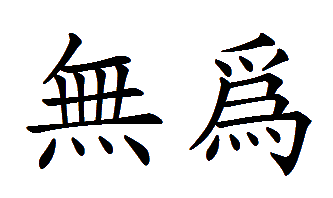Excerpts from the Tai Chi Book

No Effort
“Only those activities that are easy and pleasant will become part of a person’s habitual life… Actions that are hard to carry out, for which a man must force himself to overcome his inner opposition will never become part of his normal daily life.”
-- Moshe Feldenkrais
"What is the best form of exercise? The one that you will do."
In the studio where I teach Tai Chi in Lynchburg, Virginia, there is a large calligraphy scroll that was a gift presented to me by my teacher Chen Longxiang when I left China. It has only two large Chinese characters on it: Wu Wei ( ). This is a famous Chinese expression that literally means “No Effort.” “Wu Wei” does not mean that one takes no action, but rather that one’s actions have no trace of straining, pushing, forcing, or imposing. It refers to the ability to adapt to conditions and change according to circumstances without forceful insistence or striving. ). This is a famous Chinese expression that literally means “No Effort.” “Wu Wei” does not mean that one takes no action, but rather that one’s actions have no trace of straining, pushing, forcing, or imposing. It refers to the ability to adapt to conditions and change according to circumstances without forceful insistence or striving.
From the outset, it is important to understand that, in Tai Chi practice, very little progress will be made through pushing and straining. Everything described in this book should be done in the most relaxed manner possible. Striving and struggling will not yield results in Tai Chi. I find that this is one of the most difficult concepts for Americans to grasp. We are a nation of active do-ers who have an unconscious belief in “No pain, no gain.” Such an attitude is one of several negative habits that will have to be gradually shed during the process of mastering Tai Chi.
From the beginning, one should view Tai Chi as a pleasant experience. If one understands and applies this principle, it becomes relatively easy to develop a lifelong habit of Tai Chi practice. Studies have shown that if one’s motivation for exercise is purely negative or goal-oriented (e.g. to lose weight, to build muscle) it is more difficult to persist than if one is motivated by the sheer enjoyment of the process. There is a steep learning curve in Tai Chi, but it should be fun at every step of the way. So please do not strain or push as you practice.
“First, you should have a proper mental attitude toward practice. What is this attitude? Tell yourself that the time you spend everyday in practice is the most enjoyable and comfortable and pleasant of times. Since we don’t spend that much time each day in practice, the time we do spend is precious... Do you feel practice is an obligation or a duty, or is it enjoyable? If you don’t find enjoyment in practice, it will be hard to continue… When you practice, think of it as a time without worries. Every other time there are difficulties to think about. It’s like lifting burdens off your body and mind. It should be a relief. During practice you let everything else go.”
-- Sheng Yan , Chinese Zen (Ch’an) Master
(although these comments were originally about sitting meditation practice, they apply equally well to Tai Chi)
"Why doesn't anyone ever try softer?"
-- Lily Tomlin
|

